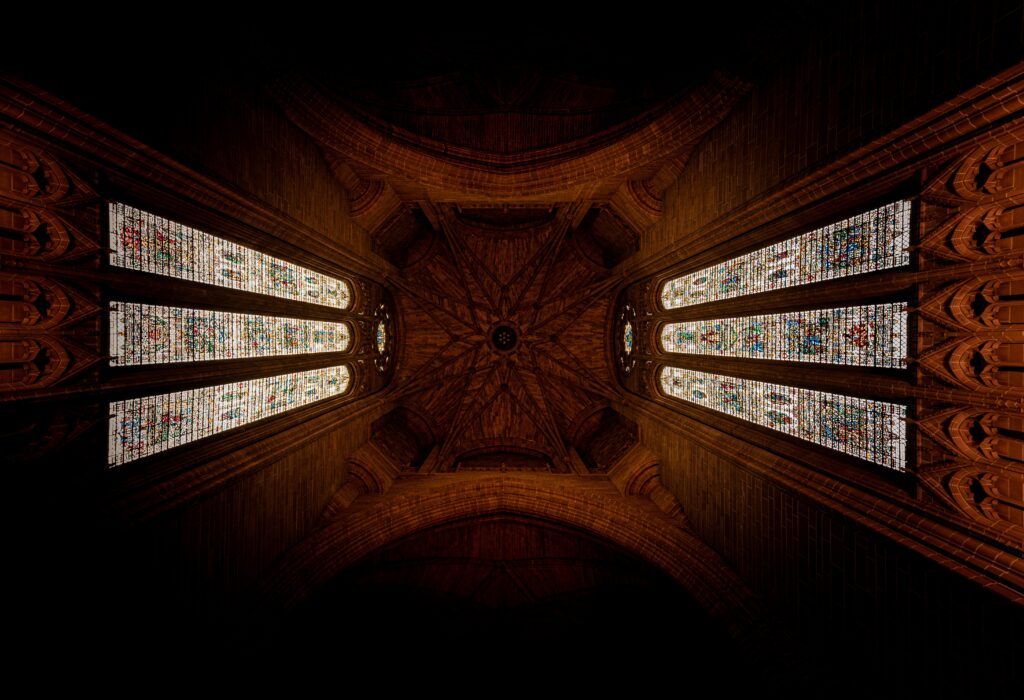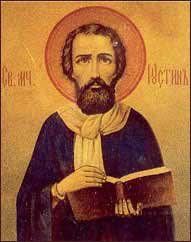*This post is the latest in a series looking at the Sabbath. Previous posts include: Where is the Sabbath in the Early Church? (Part 2), Where is the Sabbath in the Early Church? (Part 1), Ecclesiological Implications of the Sabbath (Part 2), Ecclesiological Implications of the Sabbath (part 1), Sabbath Typology and Eschatological Rest, Paul and the Sabbath, Jesus and the Sabbath, The Sabbath and the Decalogue in the OT, a look at God’s Rest as Prescriptive, an examination of the Sabbath as a Creation Ordinance.
Continuing our series on the Sabbath, this post will look at the thought of the early church father Justin Martyr to see what he thought concerning the Sabbath/Lord’s Day debate.
Justin Martyr
Justin was a second-century writer and itinerant evangelist, but he is most well known as an apologist. He has also been called “a ‘philosopher’ at least since the time of Tertullian.”[1] Justin wrote often against “all enemies of truth, Jews, Gentiles, and heretics.” Sadly, Justin was beheaded in Rome between 163 and 168 AD along with six other Christians.[2]
Two of Justin’s texts will be examined here. The first, Apology, was a defense of the Christian faith against persecution. It was addressed to Emperor Antonius Pius, Verissimus, and Lucius.[3] This Apology, along with the Second Apology, have been seen as some of the earliest examples of Christian apologetics. Indeed, some historians have given Justin credit for creating the genre of Christian apology.[4]
The second work to be examined is Justin’s Dialogue with Trypho. More than twice as long as the two Apologies, the Dialogue is a defense of Christianity against the most common objections of the Jews. The work is an account of a two-day discussion between Trypho and Justin.[5]
Text– Apology 1.67. “And on the day that is called Sunday all who live in the Cities or in Rural areas gather together in one place, and memoirs of the apostles and the writings of the prophets are read for as long as time allows.” Justin goes on to state for the Emperor the reasons for this worship: “But Sunday is the day on which we hold our common assembly since this day is the first day on which God, changing darkness and matter, created the world; it was on this very day that Jesus Christ our Savior rose from the dead.”[6]
Interpretation. Unlike Ignatius who wrote to a body of believers, Justin is writing to the Emperor in order to explain and defend Christian beliefs and practices. The first half of the quote simply explains the Christian practice of gathering on Sundays.[7] He also gives a brief description of what believers did at the gathering. Justin knew that he Emperor had probably heard reports about questionable Christian practices, and this seemingly simple account would hopefully serve to quell some of the Emperor’s suspicions.
The latter half of the quote shows Justin trying to give justification(s) for this weekly pattern: creation and resurrection.
Significance. Justin’s references to the Lord’s Day in his Apology are significant for several reasons. First, his Apology is one of the first defenses of the faith given by the church. Notably, the weekly gathering pattern is part of that defense. By explaining exactly what the Christian gatherings entailed, Justin would be able to correct any rumors that the Emperor had heard about Christian immorality.[8] Furthermore, Justin would be able both to explain Christian practices and to defend these practices over and against the Roman pagan practices and Jewish traditions of the day. Justin defends Christian practices by showing that no moral impropriety occurs, and yet shows discontinuity with surrounding customs because of the motivation for their gatherings.
This motivation for gathering on the Lord’s Day is also significant. Justin gives weekly Lord’s Day worship a theological foundation: God’s work of creation and re-creation. For Justin, it is proper for the church to worship on Sunday, rather than Saturday, because this commemorates both God’s creative work in the first week and God’s resurrecting work done on Easter Sunday. The latter reason is in alignment with Ignatius’ theological reasoning for Lord’s Day worship. However, by making the creation week an additional reason for on-going weekly worship gathering, Justin has broadened the theological foundation for Lord’s Day worship.
Interestingly, unlike those who argue for a perpetually binding sabbath creation ordinance, Justin does not ground Lord’s Day worship in God’s rest. Rather, he grounds weekly worship in God’s activity, specifically the first day. This is significant for two reasons: (1) he can keep the creation week as a prescription for weekly worship while simultaneously (2) distancing himself from the Jewish custom of weekly sabbath worship, which was also based on the creation week. By grounding weekly Lord’s Day worship within both creation and re-creation, Justin has successfully shown continuity with other Fathers (e.g., Ignatius) while also demonstrating to the Emperor that Christians do not carry the same traditions of the Jews.
Text and Interpretation- Dialogue with Trypho the Jew. Writing specifically to defend Christianity as the proper interpretation of the Old Testament and to show that Jesus is the Jewish Messiah, Justin naturally has to deal with issues regarding the Jewish law. Specifically, the question of sabbath observance is addressed multiple times. For Justin, the issue of the sabbath is tied to a proper understanding of the fulfillment of Old Covenant law and to the proper interpretation of New Covenant law. While a full treatment of Justin’s theology of the law is worthy of further treatment elsewhere, it will be sufficient here to make a few observations that specifically relate to our study: (1) For Justin, Jews never properly understood Old Covenant law and do not understand how the New Law relates to it; (2) the sabbath was not a perpetually binding obligation for Old Testament believers, therefore it is not inconceivable for the command to be removed in the New Covenant; (3) in the New Law, obedience to the sabbath command is perpetual, not weekly; and (4) circumcision, along with the rest of the Old Covenant law, pointed to and has been fulfilled in Christ. This fulfillment, along with Christ’s resurrection, combines to give typological resolution to Old Testament patterns and gives the foundation for New Covenant worship on Sundays, the eighth day.
First, Justin claims that the Jews understand neither the Old Covenant law nor the New Covenant. After explaining that the Mosaic Law is old and belongs only to the Jews, Justin argues that a new law has been placed and has “abrogated that which is before it, and a covenant which comes after in like manner has put an end to the previous one.” Furthermore, this new law is an “eternal and final law–namely, Christ– [which] has been given to us.”[9] Christ himself is the new law, and he has personally fulfilled and abrogated the Old Covenant commands, including the sabbaths.
Second, regarding the perpetual nature of the sabbath command, Justin argues that the Jews have wrongly understood the universality of the command. Consider Justin’s observation in chapter XIX:
Moreover, all those righteous men already mentioned [Adam. Abel, Enoch, Lot, Noah, Melchizedek, and Abraham], though they kept no Sabbaths, were pleasing to God; and after them Abraham with all his descendants until Moses… And you [fleshly Jews] were commanded to keep Sabbaths, that you might retain the memorial of God. For His word makes this announcement, saying, “That you may know that I am God who redeemed you.”[10]
Furthermore, “if there was no need of circumcision before Abraham, or of the observance of Sabbaths…before Moses; no more need is there of them now.”[11] According to Justin, because the sabbath command was not observed before the Mosaic Law was given, it is proper to conclude that the sabbath was neither an eternal command nor was universal in its application. Rather, for Justin, the sabbath commands were given to a specific people, the Jews, for a specific purpose: “God enjoined you to keep the Sabbath…on account of your unrighteousness, and that of your fathers.”[12]
Third, regarding the Jewish observance of the law, in chapter 12 Justin accuses the Jews of having an improper understanding of what it meant to obey the sabbath commands:
This same law [New Covenant Law, or Christ] you have despised, and His new holy covenant you have slighted; and now you neither receive it, nor repent of your evil deeds. ‘For your ears are closed, your eyes are blinded, and your heart is hardened,’ Jeremiah has cried; yet not even then do you listen…You have now need of a second circumcision, though you glory greatly in the flesh. The new law requires you to keep perpetual sabbath, and you, because you are idle for one day, suppose you are pious, not discerning why this has been commanded you…The Lord our God does not take pleasure in such observances: if there is any perjured person or a thief among you, let him cease to do so; if any adulterer, let him repent; then he has kept the sweet and true sabbaths of God.[13]
The New Law brings with it the command to observe a perpetual sabbath. In other words, New Covenant believers should be constantly “resting” in Christ. This “rest” is only attained by repenting from and avoiding sin.
Fourth, and most important to our study, Justin explains that the sabbath observance as a day of rest and worship has been replaced by the eighth day. Dialogue with Trypho 24 explains regarding the nature of the eighth day:
It is possible for us to show how the eighth day possessed a certain mysterious import, which the seventh day did not possess, and which was promulgated by God through these rites. But lest I appear now to diverge to other subjects, understand what I say: the blood of that circumcision is obsolete, and we trust in the blood of salvation; there is now another covenant, and another law has gone forth from Zion.[14]
Additionally, in Chapter 41, Justin writes:
Furthermore, the command to circumcise, requiring that children are always to be circumcised on the eighth day, was a type of the true circumcision by which we are circumcised from error and iniquity through our Lord Jesus Christ, who rose from the dead on the first day after the Sabbath. This day, the day that is the first day of the week, is called the eighth day according to the cycle of all the days of the week, and yet it remains the first day.[15]
For Justin, the sabbath and circumcision commands of the Old Covenant served as typological forerunners that have been fulfilled by Christ. The eighth-day circumcision of Jewish boys has been replaced by the circumcision of Christ on the cross.[16] Eighth-day (i.e., Sunday) corporate worship gathering now stands as a weekly reminder of Christ’s resurrection on that sacred eighth day.
Significance. Justin shows continuity with Ignatius on several points. First, he defends Lord’s Day worship and condemns weekly sabbath day observance. Also like Ignatius, Justin argues that the sabbath commands of the Old Testament were for the Jews, not for everyone.
However, Justin shows discontinuity with previous authors regarding his theological foundation for Lord’s Day worship. Justin grounds his Lord’s Day observance upon typological promise and fulfillment themes. Christ as the true circumcision and the New Law is the reason why believers meet on Sundays.
It is worth noting that Justin does argue that Lord’s Day worship is grounded in creation (First Apology 67), but that the sabbath command is not (Dialogue with Trypho, 19), contra Exodus 20. This disparity could be explained by the different audiences of the two works (Gentiles and Jews, respectively), or perhaps an evolution in his theological framework. Either way, Justin does see some sort of creation week based theological underpinning for New Covenant Lord’s Day worship.
[1]Denis Minns and Paul Parvis, eds., Justin, Philosopher and Martyr: Apologies, Oxford early Christian texts (Oxford ; New York: Oxford University Press, 2009), 59.
[2]Minns and Parvis, Justin, Philosopher and Martyr, 32.
[3]Minns and Parvis, Justin, Philosopher and Martyr, 34.
[4]Paul Parvis, “Justin Martyr,” The Expository Times 120, no. 2 (November, 2008): 59. See also: Sara Parvis, “Justin Martyr and the Apologetic Tradition”, in Justin Martyr and His Worlds (Minneapolis: Fortress Press, 2007), 115–27.
[5]Johnson, Worship in the Early Church, 69.
[6]Johnson, Worship in the Early Church, 68.
[7]Regarding the gathering of believers, Minns and Parvis argue that, “It is highly improbable that large numbers of Christians gathered, even in the one city, for the Sunday eucharist, and even more unlikely that they travelled from rural areas to attend a eucharist with city-dwelling Christians,” in Justin, Minns, and Parvis, Justin, Philosopher and Martyr: Apologies, Oxford early Christian texts (Oxford; New York: Oxford University Press, 2009), 259n3. The physical location of the gatherings is not of primary interest in this paper; instead, the weekly pattern of gathering is of concern.
[8]E.g., Christians were charged with cannibalism because of language about eating Christ’s “flesh” and drinking His “blood.” See: Andrew McGowan, “Eating People: Accusations of Cannibalism Against Christians in the Second Century,” Journal of Early Christian Studies 2, no. 4 (1994): 413–42. Justin also mentions this slanderous charge in Dialogue with Trypho 10.
[9]Justin, Dialogue with Trypho 10, Alexander Roberts, James Donaldson, and A. Cleveland Coxe, eds., Ante-Nicene Fathers: The Writings of the Fathers down to A.D. 325 (Peabody, Mass.: Hendrickson Publishers, 1994), 1:200. All subsequent citations to the Ante-Nicene Fathers will be indicated as ANF.
[10]Dialogue with Trypho 19, ANF, 1:205. Emphasis added.
[11]Dialogue with Trypho 23, ANF, 1:206.
[12]Dialogue with Trypho 21, ANF, 1:204.
[13]Dialogue with Trypho 12, ANF, 1:200.
[14]Dialogue with Trypho 24, ANF, 1:206.
[15]Dialogue with Trypho 41, in Johnson, Worship in the Early Church, 1:69.
[16]Justin also sees the eighth day signified by the eight people saved on Noah’s ark: “For righteous Noah, along wit the other mortals at the deluge, i.e., with his own wife, his three sons and their wives, being eight in number, were a symbol of the eighth day, wherein Christ appeared when He rose from the dead, for ever the first in power,” Dialogue with Trypho 138, ANF, 1:268.























